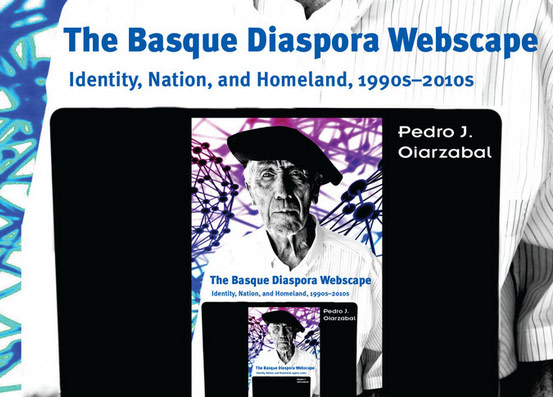basque heritage worldwide

11/04/2013

ADVERTISING
Bilbao, Bizkaia. The Basque Diaspora Webscape: Identity, Nation, and Homeland, 1990s-2010s is the complete title of the latest work by historian Pedro J. Oiarzabal,of the University of Deusto, a study that documents the virtual life of Basque clubs around the world since their beginning with the first websites in the 90s until today, 2013.
The work is based on his Ph.D. dissertation that he completed in 2006 at the University of Nevada, Reno but has been revised and updated.
Digital Basque Diaspora
“The digital world evolves very rapidly and this work is a historic look at the origin of the digital Basque Diaspora,” Oiarzabal explains. It is a world in constant change that grows and evolves with the contributions of the numerous Basque visitors from here and there.
Perhaps, surely, many of our readers have contributed their grain of sand to the story that Oiarzabal gathers in this book. Since the day that it occurred to someone to create a modest webpage for his/her Euskal Etxea, until today with those who contribute and participate in groups on Facebook on Diaspora themes. All of these contribute to this story that Oiarzabal has documented in a book that will serve for those who want to know how it all began.
A Hundred Pages
“We try to fight the ephemeral nature of the web, where things are created, changed and are constantly lost. I have tried to provide a snapshot of this historic moment, from the 1990s until today, for those who in a few years will want to know how it happened,” said the author.
The book provides a comparative look at nearly 100 websites of Basque clubs in 16 different countries in Europe, America and Oceania, studying “how they are made, why, and what they tell us” these digital club headquarters.
New Study
The work was published in English and Oiarzabal hopes that the topic will incite interest in the Basque Country in order to publish in Basque and Spanish as well. It is aimed at researchers and academics, as well as the protagonists themselves, the Basques in the Diaspora.
“I also think it may be of interest for any other minority Diaspora, since it is a new study in the field, there are no others of this depth,” assures Oiarzabal.
The book is available to purchase online from the Center for Basque Studies.
Here is an extract from the books introduction:
“You ask me, “Where is Euskal Herria, the Basque Country?” Euskal Herria is everywhere. It is in the Australian sugar plantations of North Queensland, in the high desert of the western United States, in the pampas of Argentina, in the industrial and technological hubs of Europe and Asia, and in cyberspace, the last frontier expanded by our imaginations. Like a constellation of stars, the different Basque platforms on the World Wide Web (web) are connected by imaginary lines or links, drawing a picture that speaks of a new landscape that I call webscape. More than ever, Basque culture is uprooted, diasporic, and deterritorialized. It expands, bringing light to an expanding space. That is, the Basques—diaspora and homeland alike—are constructing an identity atlas: a sum of geographies, times, generations, and individual identities, by-products of lived experiences and inherited traditions."
ADVERTISING
ADVERTISING
ADVERTISING
ADVERTISING
ADVERTISING
© 2014 - 2019 Basque Heritage Elkartea
Bera Bera 73
20009 Donostia / San Sebastián
Tel: (+34) 943 316170
Email: info@euskalkultura.eus